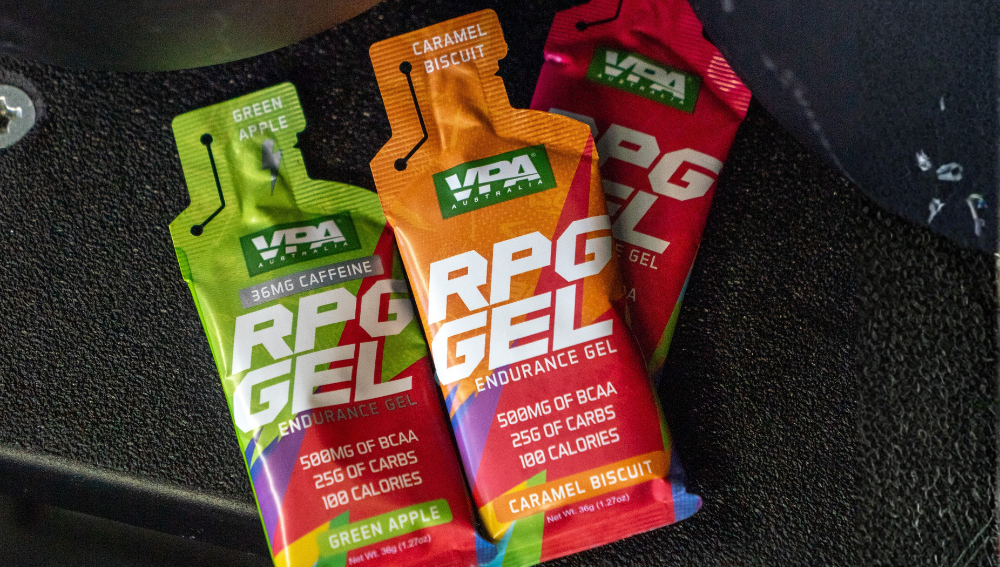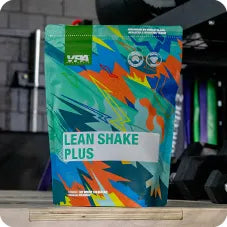Your Cart is Empty
Immune response to exercise
June 19, 2019 5 min read

The immune system is a complex structure made of a range of components working together. It is an essential component in assisting us function on a daily basis and aims to prevent illness as much as possible. The immune system is comprised of white blood cells, antibodies and numerous other organs and tissues which all help catch and fight infection through recognizing and removing foreign particles that are different to body’s normal healthy tissues.
Clearly when the immune system deteriorates, so does our ability to function. Subsequently, it is vital for us to understand how we can strengthen our immune system and prevent weakening it. We all know that everyone has a higher chance of becoming unwell in the winter months with more germs being spread around and many conditions known to flare up as well. Interestingly, studies have shown that different genes associated with the immune system are activated at different times of the year. This could explain why winter is such a problem season in comparison to other seasons. However, let’s focus on the things we can control, rather than the things such as our genes which we cannot change. Exercise, sleep, protein and carbohydrates are all essential factors for us to investigate.
Exercise
Exercise is such an important factor of maintaining a healthy lifestyle, however, there is one catch; exercise has been shown to reduce the immune system during the recovery phase. This comes down numerous components of the immune system. Pre-exercise lymphocyte (small white blood cells), natural killer cells (a type of lymphocyte which focuses on rejecting infected cells) and antibody (cells that help recognize and remove harmful cells in the body) production all appear to diminish post-exercise. The hardest test for most of us is to understand when our body needs to rest. For most people in a healthy state it only takes a day to recover after intense exercise and the immune system regains the power it needs to function properly. However, this changes when intense exercise is undertaken for a long period of time, or more than once within 24 hours. Natural killer cells can take up to 7 days to fully restore. Lymphocytes drop as soon as 30min into a work out but generally restore within 6hrs after recovery. Neutrophil (the most abundant type of white blood cell) activity elevates 1 hour post exercise but may be impaired if exercise extreme or prolonged. Therefore, extra caution should be taken for those who undertake vigorous exercise for longer than 1.5 hours to prevent any illness, especially if training is leading up to a certain event.
Sleep
There are numerous systems in the body which help regulate our body’s signals which influence our immune system. Our sleep is regulated through 2 main systems: circadian rhythm and sleep/wake homeostasis. Inadequate sleep disrupts the body’s normal circadian rhythm, which consequently diminishes the immune system’s ability to function adequately. It is believed that disturbed sleep patterns may be linked to higher levels of inflammation and lower immune function. Studies have shown that those who have chronic sleep disturbances display 4-5 times the amount of common cold symptoms in comparison to those who don’t. Although it is important to exercise, make sure it does not disturb your sleep cycle. Undertaking exercise late at night may inhibit your ability to fall asleep and minimize the amount of sleep you acquire. Intense exercise may also lead to muscle soreness or cramps which could disturb a good night’s sleep. Hence, make sure you do not undermine your sleep and find a resolution to anything that may distort your circadian rhythm.
Diet
Diet as another crucial component to recovery including immune restoration. Carbohydrates aim to maintain good blood sugar levels and reduce stress hormones during and after exercise. They have been believed to increase cytokines as well as redistribute neutrophils, natural killer cells and lymphocytes. This is only the case if carbohydrates are consumed during or just before exercise so they can be absorbed in a timely fashion to preventing the immune system from dropping. High carbohydrate diets (8.5g/kg/day) help reduce symptoms of overreaching/overtraining in comparison to lower protein diets (5.5g/kg/day). Therefore, carbohydrate restriction should be avoided in individuals with high intensity exercise regimens. Protein (3g/kg/day) taken with carbohydrates within 1 hour of intense exercise also reduces neutrophils degranulation (the process of releasing their antimicrobial cytotoxic molecules) during the recovery phase. A high protein diet has also been reported to result in fewer upper respiratory tract infections suggesting protein is an essential component of maintaining a healthy immune system and strong body overall.
So keep your immune system strong to allow you to perform at your peak in all aspects of your life. Exercising regimes, sleep, carbohydrates and protein are all important.
References
Peake, J. M., Neubauer, O., Walsh, N. P., & Simpson, R. J. (2017). Recovery of the immune system after exercise. Journal of Applied Physiology, 122(5), 1077-1087.
Shek, P. N., Sabiston, B. H., Buguet, A., & Radomski, M. W. (1995). Strenuous exercise and immunological changes. International journal of sports medicine, 16(07), 466-474.
Booth, S., Florida-James, G. D., McFarlin, B. K., Spielmann, G., O’Connor, D. P., & Simpson, R. J. (2010). The impact of acute strenuous exercise on TLR2, TLR4 and HLA. DR expression on human blood monocytes induced by autologous serum. European journal of applied physiology, 110(6), 1259-1268.
Peake, J., Nosaka, K. K., & Suzuki, K. (2005). Characterization of inflammatory responses to eccentric exercise in humans.
Pedersen, B. K., Rohde, T., & Ostrowski, K. (1998). Recovery of the immune system after exercise. Acta Physiologica Scandinavica, 162(3), 325-332.
Peeling, P., Dawson, B., Goodman, C., Landers, G., Wiegerinck, E. T., Swinkels, D. W., & Trinder, D. (2009). Cumulative effects of consecutive running sessions on hemolysis, inflammation and hepcidin activity. European journal of applied physiology, 106(1), 51-59.
Walsh, N. P., Gleeson, M., Shephard, R. J., Gleeson, M., Woods, J. A., Bishop, N., … & Rogers, C. J. (2011). Position statement part one: immune function and exercise.
Prather, A. A., Janicki-Deverts, D., Hall, M. H., & Cohen, S. (2015). Behaviorally assessed sleep and susceptibility to the common cold. Sleep, 38(9), 1353-1359.
Cohen, S., Doyle, W. J., Alper, C. M., Janicki-Deverts, D., & Turner, R. B. (2009). Sleep habits and susceptibility to the common cold. Archives of internal medicine, 169(1), 62-67.
Irwin, M. R. (2015). Why sleep is important for health: a psychoneuroimmunology perspective. Annual review of psychology, 66, 143-172.
Gleeson, M., & Bishop, N. C. (2005). The T cell and NK cell immune response to exercise. Annals of transplantation, 10(4), 44.
Nieman, D. C. (1998). Influence of carbohydrate on the immune response to intensive, prolonged exercise. Exercise immunology review, 4, 64-76.
Nieman, D. C., Fagoaga, O. R., Butterworth, D. E., Warren, B. J., Utter, A., Davis, J. M., … & Nehlsen-Cannarella, S. L. (1997). Carbohydrate supplementation affects blood granulocyte and monocyte trafficking but not function after 2.5 h or running. The American journal of clinical nutrition, 66(1), 153-159.
Verde, T., Thomas, S., & Shephard, R. J. (1992). Potential markers of heavy training in highly trained distance runners. British Journal of Sports Medicine, 26(3), 167-175.
Suzuki, K., Totsuka, M., Nakaji, S., Yamada, M., Kudoh, S., Liu, Q., … & Sato, K. (1999). Endurance exercise causes interaction among stress hormones, cytokines, neutrophil dynamics, and muscle damage. Journal of Applied Physiology, 87(4), 1360-1367.
Nieman, D. C., Henson, D. A., Davis, J. M., Murphy, E. A., Jenkins, D. P., Gross, S. J., … & McAnulty, S. R. (2007). Quercetin’s influence on exercise-induced changes in plasma cytokines and muscle and leukocyte cytokine mRNA. Journal of Applied Physiology, 103(5), 1728-1735.
Also in Featured

Creatine Capsules vs Powder — Which Is Better for Strength and Performance?
November 06, 2025 6 min read
Read More
Running Gels Explained — What They Are, How They Work, and When to Use Them
November 06, 2025 10 min read
Read More
Why Energy Gels Are a Game-Changer for HYROX Athletes and Functional Fitness Training
October 15, 2025 6 min read
Read More Recent Articles
- Creatine Capsules vs Powder — Which Is Better for Strength and Performance?
- Running Gels Explained — What They Are, How They Work, and When to Use Them
- Why Energy Gels Are a Game-Changer for HYROX Athletes and Functional Fitness Training
- Body Type Diet: How to Eat for Your Ectomorph, Mesomorph or Endomorph Build
- The Best Way to Take Creatine for Maximum Results (2025 Guide)
- Creatine Gummies Scam? What You Need to Know vs Powder
- 10 Proven Whey Protein Benefits (and Why WPI Might Be the Best Option)
- Third-Party Tested Supplements in Australia: Why It Matters More Than Ever
- 7 Best Protein Powders for Weight Loss in Australia (Updated 2025)
- Prebiotic Collagen Protein for Gut Health and Weight Loss: What You Should Know
${{amount}}













